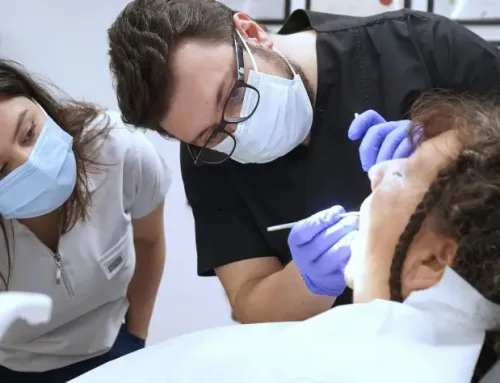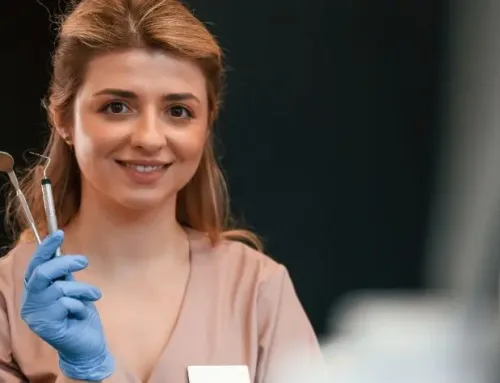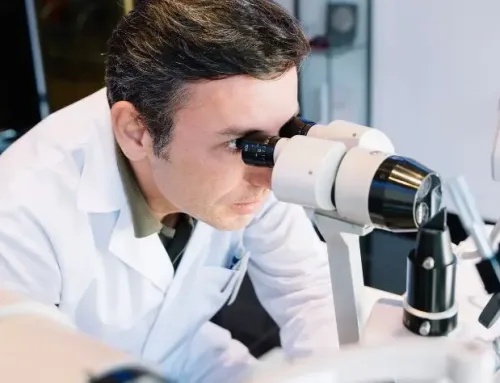From the Lab to the Clinic: How to Become a Translational Research Scientist

How to become a translational research scientist is a question often asked by those drawn to bench-to-bedside work—the kind of research that doesn’t just live in a lab, but directly improves patient outcomes. Bench-to-bedside is a transformative field, focused on translating lab discoveries into real-world treatments, diagnostics, and technologies that shape clinical care. It’s where curiosity meets impact.
Becoming a translational research scientist means building a career that bridges science and medicine. It takes advanced education, focused training, and a deep understanding of both research and patient care. As healthcare continues to evolve, there’s growing demand for scientists who can move discoveries out of the lab and into the clinic—fast, effectively, and with purpose.
What Translational Research Scientists Do and Why It Matters
Translational research scientists play a critical role in bridging the gap between laboratory discoveries and real-world clinical applications. Their mission is simple but powerful: turn breakthroughs at the bench into treatments, technologies, and tools that improve patient care. It’s science in motion—where innovation meets impact.
This field requires more than just lab skills. Translational researchers need a deep understanding of human biology, clinical systems, public health, and the social and environmental factors that affect patient outcomes. It’s a highly collaborative role that draws on multiple disciplines to solve complex problems in healthcare.
Responsibilities
Translational research scientists work across research and clinical settings, often in collaboration with physicians, data scientists, and public health professionals. Their day-to-day may include:
- Designing and conducting experiments focused on disease mechanisms, treatments, or diagnostics
- Working with patient-derived samples, clinical data, or real-world evidence
- Collaborating with healthcare providers to identify unmet clinical needs
- Publishing findings in peer-reviewed journals and presenting at scientific conferences
- Navigating regulatory processes to move discoveries into clinical trials
This work demands critical thinking, adaptability, and the ability to connect basic science with patient-centered outcomes.
Fields of Impact
Translational research scientists work across a wide range of disciplines, each offering unique opportunities to move discoveries from the lab into clinical and community settings. In every area, the goal remains the same: to improve health outcomes by turning research into practical solutions.
In medical sciences, translational researchers develop new therapies, refine diagnostic tools, and collaborate with clinicians to improve patient care protocols. In genomics and molecular biology, they apply genetic insights to create more personalized approaches to treatment and disease prevention. Public health is another critical area, where researchers investigate how social, environmental, and behavioral factors influence health, aiming to close gaps in care and reach underserved populations. In biotechnology and pharmaceutical industries, translational scientists help drive the development of new drugs, vaccines, and medical devices.
Finally, in health data science, they work with large datasets, predictive models, and machine learning tools to optimize clinical decision-making and identify emerging trends. Across every field, translational research scientists are key players in shaping the future of medicine—one discovery at a time.
The demand for translational research scientists is growing as industries seek innovative solutions. With an average base salary of $115,000, this career not only offers intellectual fulfillment but also financial stability, making it an attractive and impactful choice.
Do You Have What It Takes to Work in Translational Research?
You don’t need to be a physician or a lifelong academic to work in translational research. The field is evolving—and so are the people entering it. More professionals with strong biomedical training and clinical fluency are stepping into these roles and making a real impact.
What Makes a Strong Translational Researcher?
While career paths vary, many of the best translational scientists share a common mindset. They’re:
- Curious and driven to explore the unknown
- Collaborative, working across disciplines and teams
- Data-savvy, with an ability to interpret complex results
- Patient-focused, always thinking about real-world impact
They’re not just bench scientists. They’re problem-solvers with a deep desire to bridge research and care.
Step-by-Step: How to Become a Translational Research Scientist?
Step 1: Build a Strong Science Foundation
Start with a bachelor’s degree in biology, chemistry, biomedical science, or a related field. You’ll also want hands-on lab experience—through internships, undergrad research, or assistant roles. Bonus points if you’ve had any exposure to clinical environments, even shadowing. That clinical literacy becomes important later.
Step 2: Enroll in a Master’s Program That Bridges Science and Medicine
Here’s where you move from science student to scientist-in-training. SCU’s Master of Science in Medical Science (MSMS) is designed for this exact purpose.
- Curriculum mirrors the first year of medical school
- Trains you to think clinically and scientifically
- Emphasizes USMLE-style exams, case-based learning, and systems thinking
- Offers flexible formats—accelerated online, and hybrid-remote
- Personalized dashboards help track progress and close knowledge gaps
Unlike a traditional master’s in biology, the MSMS gives you both academic credentials and clinical context, preparing you for med school, PhD programs, or direct entry into research. It also helps clarify whether you’re more drawn to discovery or direct patient care.
Step 3: Get Research Experience in a Translational Setting
Apply for roles like lab technician, clinical research assistant, or research associate. Prioritize research hospitals, academic medical centers, and labs working on clinical trials. You’ll learn how to write proposals, design studies, and move data from the bench toward clinical application.
Step 4: Specialize Further (Optional, but a Big Plus)
If you want to lead studies or run your own lab, a PhD or MD/PhD may be the next step. You can also apply to structured fellowships in translational research through programs like the NIH or CTSA hubs. Our MSMS grads enter these programs with a major advantage—they’ve already completed rigorous, medical-level coursework and know how to operate in both lab and clinical contexts.
Step 5: Launch Your Translational Research Career
Now, you’re ready to enter the field. Common entry-level roles include:
- Translational Research Associate
- Clinical Scientist
- Research Program Coordinator
- Regulatory Affairs Associate
- Translational Oncology Scientist
You’ll find opportunities at institutions like the NIH, Pfizer, Genentech, academic medical centers, and biotech startups. Combine your MSMS foundation, hands-on research experience, and passion for clinical impact to land a role that moves science forward—one discovery at a time.
From Coursework to Research: SCU’s MSMS Advantage
At SCU, we know the journey to becoming a successful researcher starts with a solid foundation and meaningful experience. Our Master of Science in Medical Science (MSMS) program offers rigorous academics to prepare you for advanced studies and exciting careers in research.
Strong Foundation for Aspiring Research Scientists
We’ve designed our MSMS program to help students build a deep understanding of medical and biological sciences.
The curriculum integrates coursework in essential topics like molecular biology, anatomy, and biochemistry, designed to strengthen both theoretical knowledge and practical clinical case skills. This rigorous academic experience prepares you for the demands of high-level research roles or further doctoral studies, ensuring you’re ready to take on complex scientific challenges and contribute meaningfully to the field.
Opportunities for Research Experience
Foundational science is key to becoming a great researcher, and we make it a priority.
- You’ll have the chance to analyze case-based USMLE data, and explore real-world scientific questions to mimic the first year of medical school.
- These practical opportunities not only develop your technical skills but also help you discover where your interests and passions lie.
This experience prepares you for the demands of scientific inquiry and makes your academic and professional profile stand out.
Preparation for Doctoral Studies
For those aiming to pursue a PhD or other advanced training, our MSMS program provides the ideal stepping stone. We focus on fostering independent thinking, scientific problem-solving, and advanced technical skills to ensure you’re ready for the next phase of your journey.
Whether your goal is a career in academia, industry, or specialized research, our program gives you the confidence and preparation to succeed in competitive doctoral programs or professional environments.
Flexible, Online Learning
We know life doesn’t stop for school, and we’re here to make sure you can balance it all. That’s why we offer flexible learning options that fit into your busy schedule.
- Fully Online: Study from anywhere at your pace.
- Manage Your Schedule: Juggle work, family, or other commitments without compromising on your education.
- Expert Faculty Access: Connect with our professors who are here to guide and support you every step of the way.
- Interactive Learning Tools: Enjoy engaging, hands-on resources that enhance your learning experience.
At SCU, we’re here to guide you every step of the way.
Join SCU Today!
Learning how to become a translational research scientist starts with the right foundation, hands-on experience, and preparation for advanced studies. At SCU, our MSMS program is designed to support aspiring scientists with rigorous academics, research opportunities, and flexible learning options to fit their lives.
Your journey toward a rewarding career in scientific discovery begins today. Explore our admissions requirements and take the first step by applying now. Unlock your potential with SCU!
FAQs
What exactly does a bench-to-bedside scientist do?
They take discoveries from the lab and help turn them into real-world treatments, diagnostics, or technologies. It’s applied science—focused on improving patient outcomes by bridging basic research and clinical application.
Is a translational research scientist the same as a bench-to-bedside scientist?
In most cases, yes. “Translational research” is the formal name for bench-to-bedside work. It’s about moving science from the bench (lab) to the bedside (clinical care) with real impact on patients.
What skills are most important for a translational research scientist?
Critical thinking, data analysis, clinical awareness, collaboration, and communication. You need to understand both the science and the real-world healthcare context it applies to.
What’s the long-term career path for someone in translational research?
You can grow into leadership roles in research design, regulatory strategy, clinical trials, or innovation management. With experience, many lead labs, direct clinical research programs, or transition into roles at biotech or healthcare policy organizations.
How does a degree like an MSMS help in translational research?
An MSMS provides advanced science training plus clinical context, which is rare in traditional master’s programs. It gives you the language, framework, and skills to navigate both sides of translational work—bench and bedside.
Related Posts




